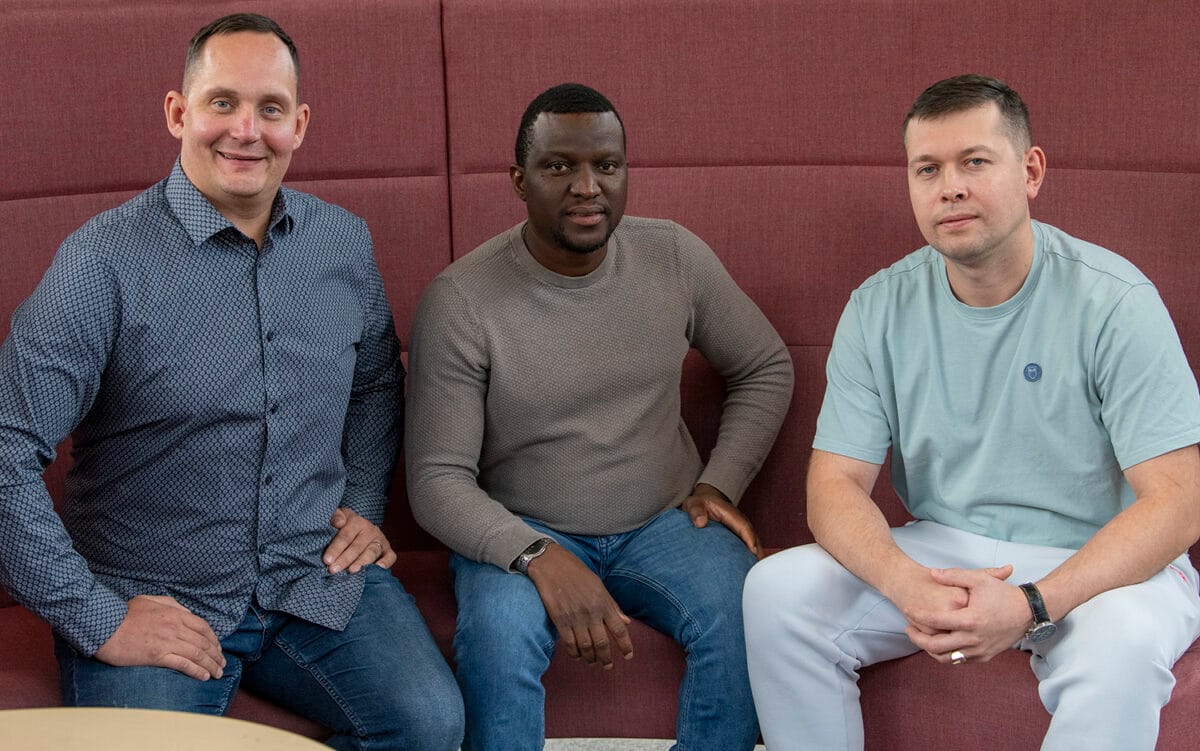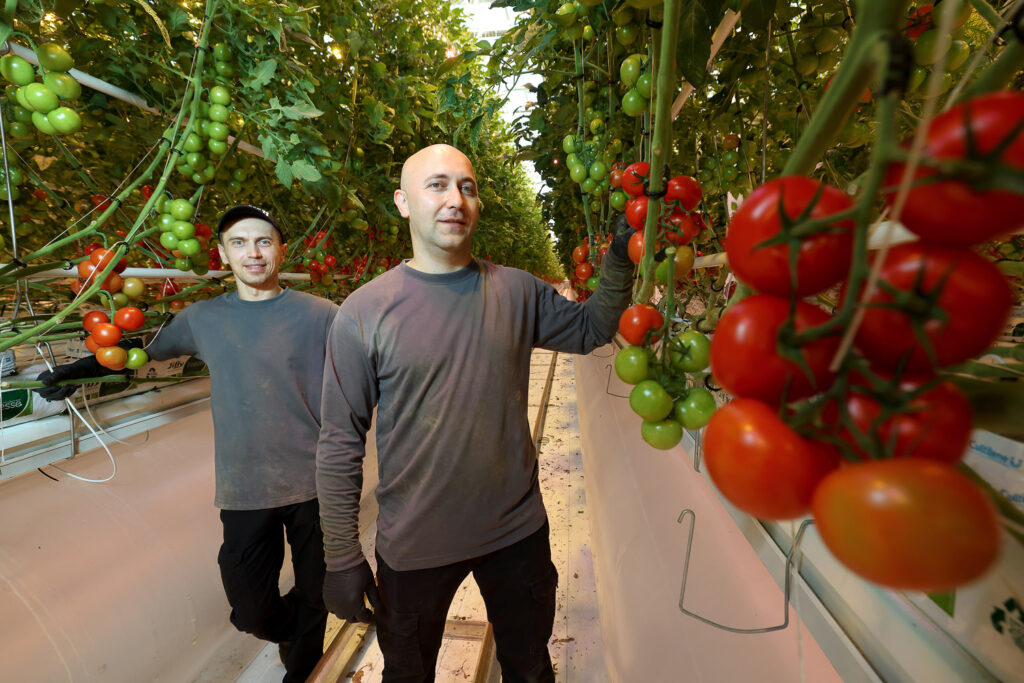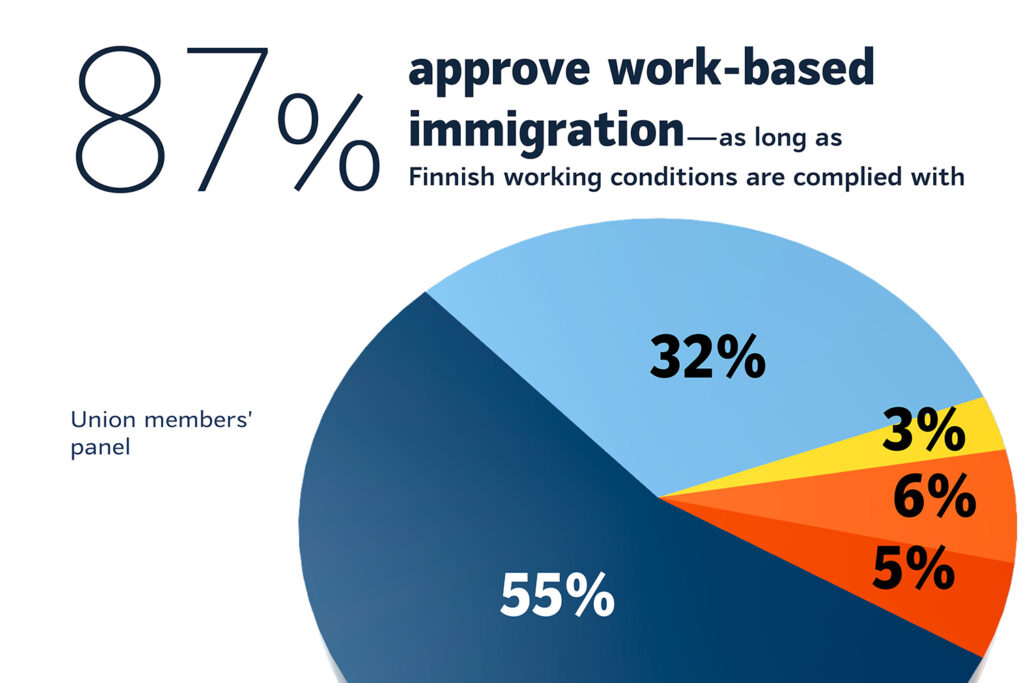The collective message is clear: More courses in English are wanted
The brand-new Union News course for union members of foreign background is the latest addition to the English course selection. The focus of the course was the history of the Industrial Union and the trade union movement, but sights are already set towards the future and for more courses in English.
A lecture in the Latomo classroom at Murikka Institute has caught the attention of the group of Industrial Union members of foreign background. Many lean forward as hands shoot upward every so often to ask questions and clarifications. Course instructor Arto Helenius steers the conversation towards current labour politics just before the afternoon coffee break. The recap of the changes made by the Orpo-Purra government even manages to elicit a few laughs by their sheer absurdity.
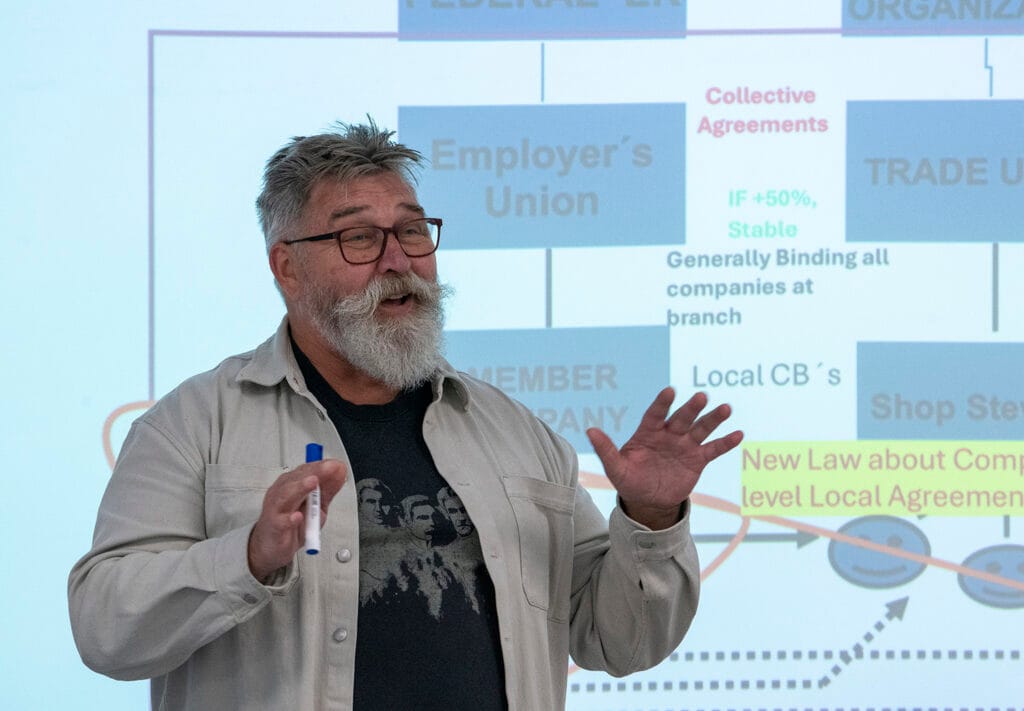
Union News – training for foreign language members is the latest addition to the growing number of Industrial Union courses aimed towards members of foreign background. Most of the attendees have participated in Industrial Union courses before, but Frank Ogheneruno Akpedeye is one of the newcomers. Akpedeye works as a support operator at Teleste Information Solutions in Forssa and has just recently become interested in union activities. After moving to Finland in 2010 as a student, Akpedeye has graduated as a Bachelor of Engineering in supply chain management from Häme University of Applied Sciences (HAMK) and as a Master of Engineering in project management at Vaasa University of Applied Sciences (VAMK).
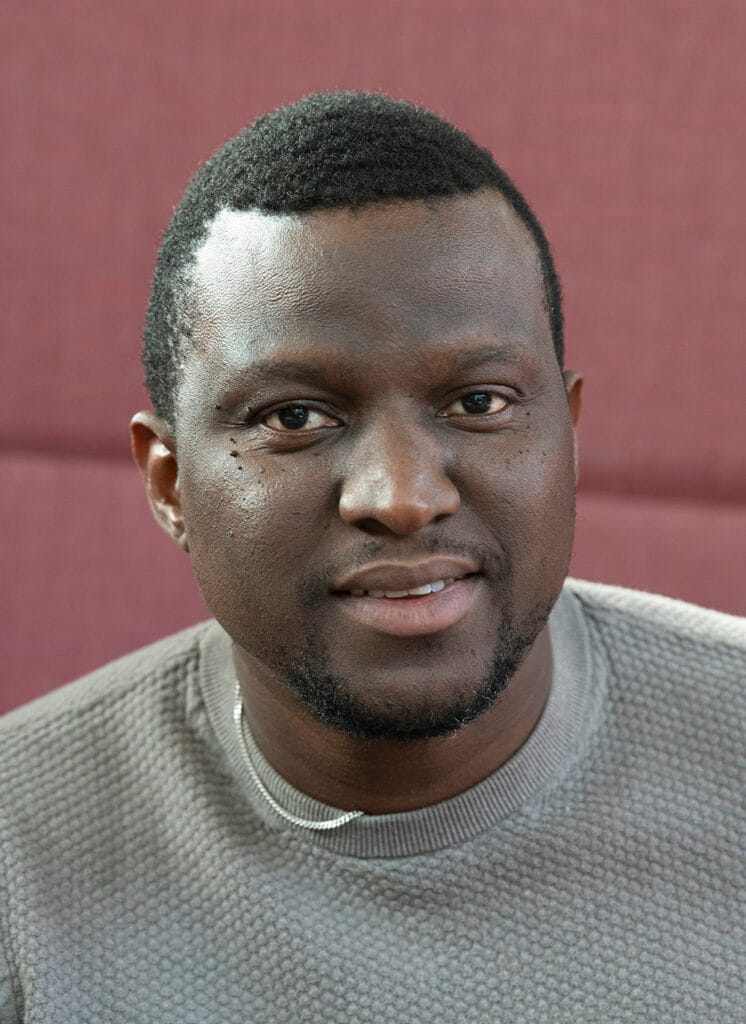
“It’s nice to be here to get more insight on union matters and to meet new people. Generally, it is a good idea to know what the union is about,” Akpedeye says.
A WARM WELCOME
Vladimir Batrakov and Sergei Unukainen both joined the union almost immediately after moving to Finland and getting a job. The Estonian duo has participated in union courses several times together.
“The course has had interesting and important lessons. The best aspects of this course are the theme of history and unions and the people I get to study with, which makes the group work that much better,” says Unukainen.
“The best parts are gaining new knowledge and information, getting help and meeting new people. I participated in an Industrial Union Youth Event some while back and I was the only foreigner there. But everyone was so warm and welcoming. Some common games and activities were in English just because of one guy who didn’t speak that much Finnish, it was heartwarming,” Batrakov recounts.
“That’s the power of integration,” Akpedeye adds.
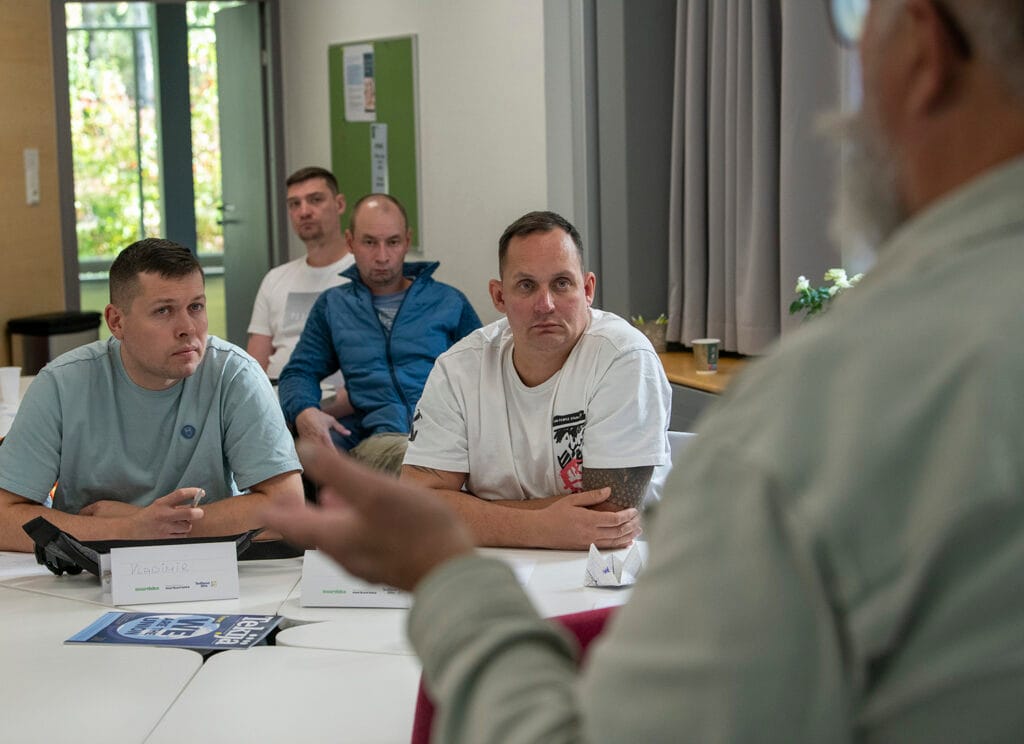
Labour rights and union matters haven’t really come up as topics between their respective workplaces, but Unukainen takes the time to praise his “opposition.”
“My job at Aurajoki Oy is nice. My boss is understanding and accepts me leaving for courses with no problems. He understands our right to strike, and I sometimes think he should be on the other side of the fence,” Unukainen laughs.
ESSENTIAL IN ORGANISING
The subject matters of the Union News course consist of information and news about the union. The focus was on the birth and history of the unions in addition to current topics like the current political landscape, as requested by attendees from the previous Rules of working life course.
“The goal for Union News is to have a yearly course with different subject matters to keep up with the demand for more,” the Industrial Union bargaining specialist Martti Paavilainen says.
The need for more courses has been the collective message from the participants.
Paavilainen was part of the team that put the course together and gave a lecture about the history of the Finnish trade union movement. Other major topics of the course included company-specific collective agreement negotiations in Finland and Finnish labour market model in light of recent changes.
“It’s important to have training that can reach our members in a language they understand. It brings our foreign members together and tells them they are not alone, giving them the courage to become more active. In short, courses aimed towards members of foreign background are essential in organising,” Paavilainen says.

MORE COURSES AND MORE INTEGRATION
The training for the day is about to hit the final stretch. Facilitators Deniz Kazar and Henri von Adlerkrone guide the class on workshopping marketing for the Teollisuusliiton Hermes ‑application. The three-day course will conclude the next morning with the presentation of group works that have been worked on for the duration of the course. Before hurrying back to the classroom Akpedeye, Batrakov and Unukainen share nearly the same sentiment: we want more.
“I’d like to participate in English courses for shop stewards. In general, I’d like to participate in more courses in English. There are courses in Finnish every week, but seldomly in English,” Unukainen says.
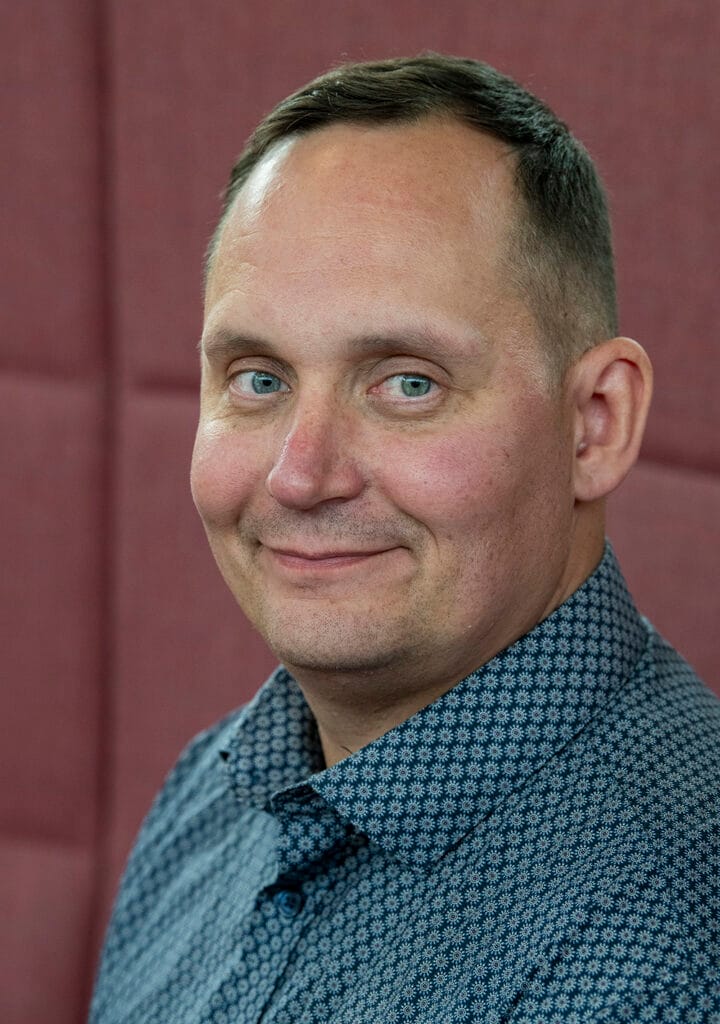
“There should also be more campaigning for the existing courses, so that more members would become aware of the opportunity and would participate,” Akpedeye says in turn.
Generally, it is a good idea to know what the union is about.
The demand for more has not gone unnoticed.
“The need for more courses has been the collective message from the participants. We need to listen to the insights of our growing number of members of foreign background. This year, we have arranged the basic show steward course in English for the first time. We’re hoping that the Union News course will become a recurring fixture. These courses are also important for us, as we get information and insights from our members that we can then pass forward,” Paavilainen states.
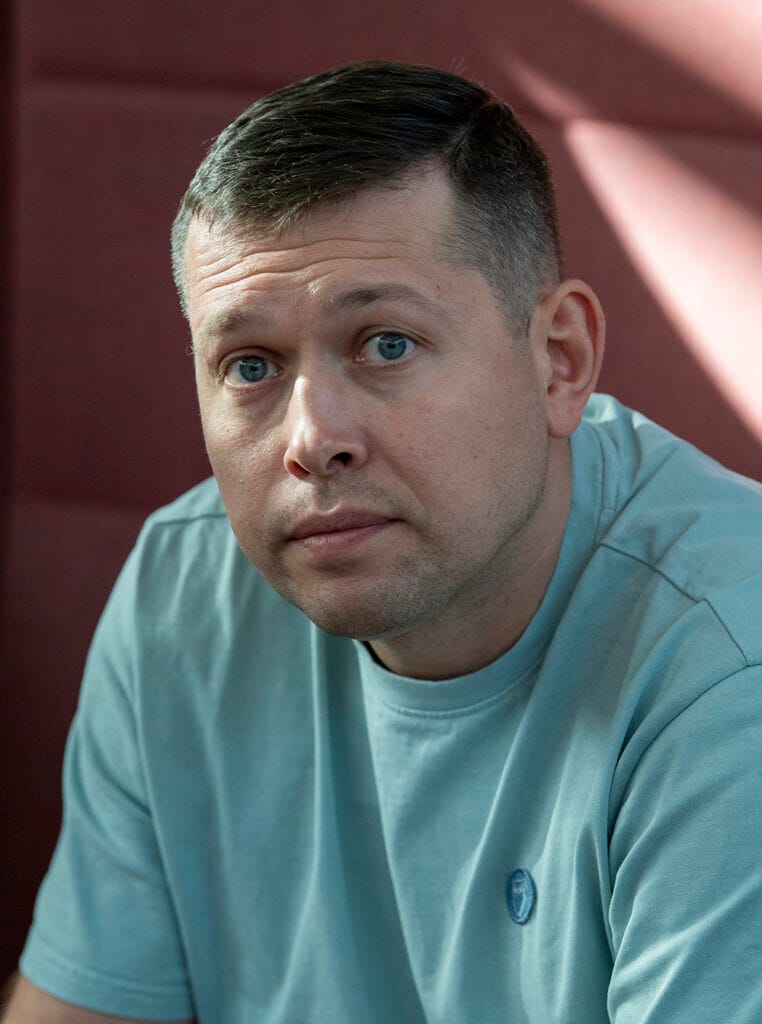
“A course about union benefits and how to use them would be useful. I also think that a mixed course between native Finnish workers and those of foreign background would be a good experience. It could be great for integration, a chance to get to know each other better and gain a better understanding of our different cultures,” Batrakov adds.

